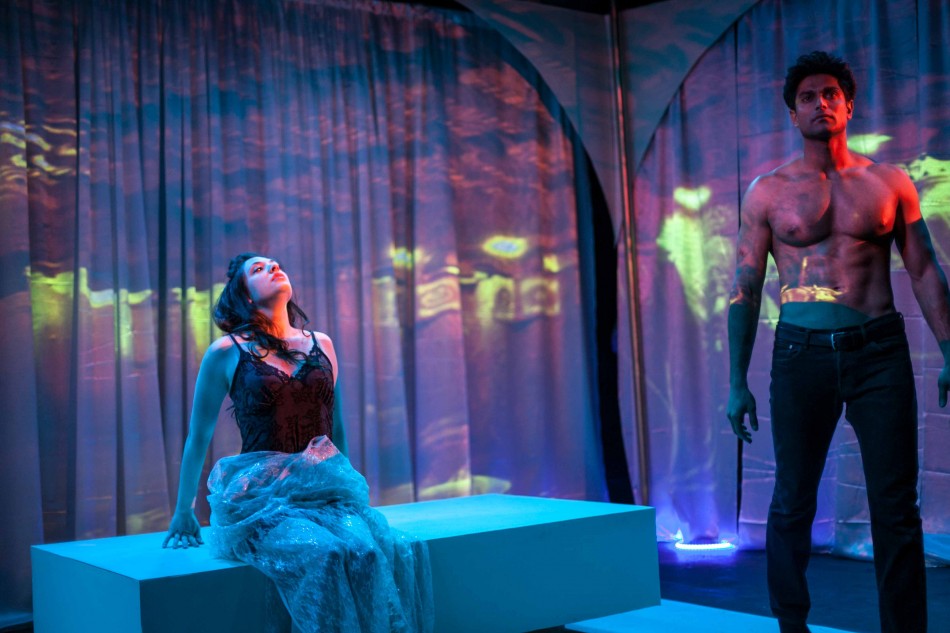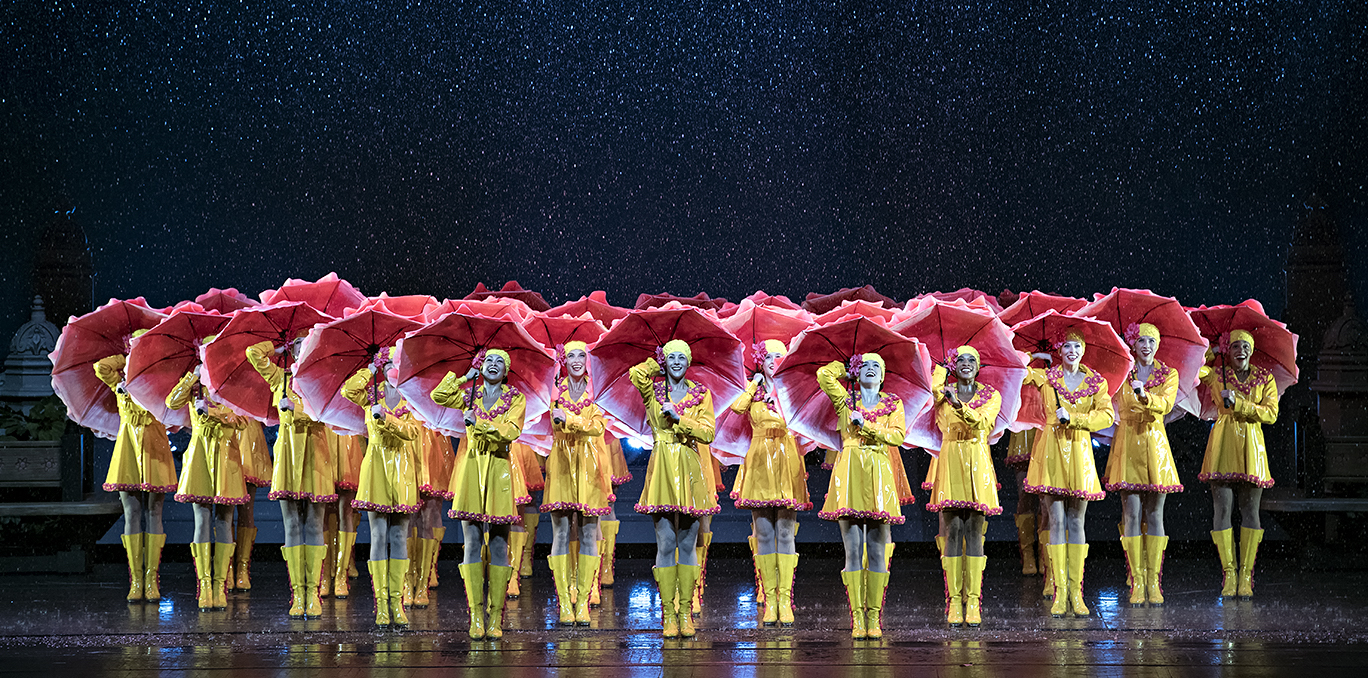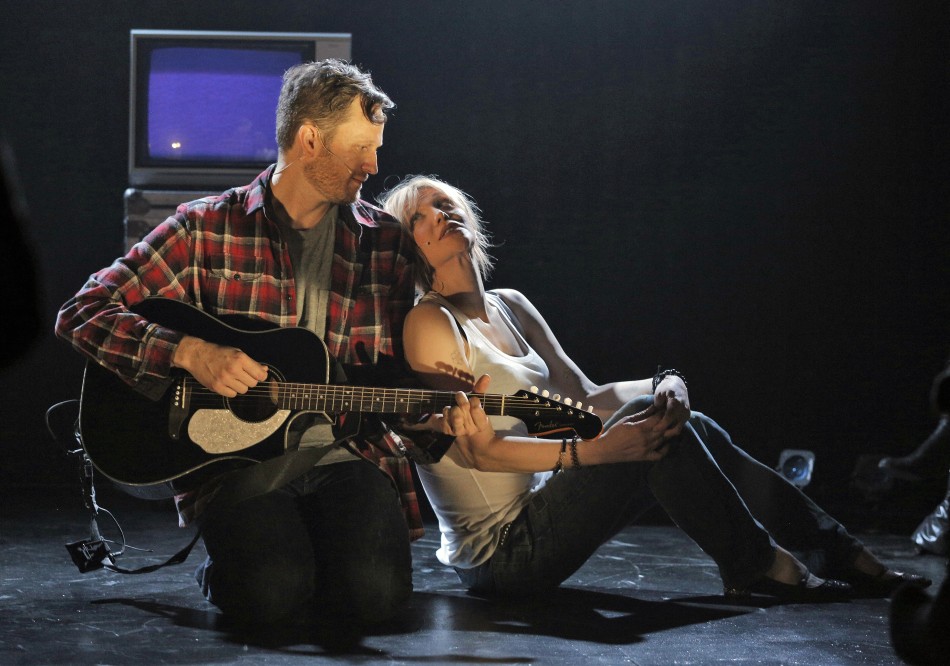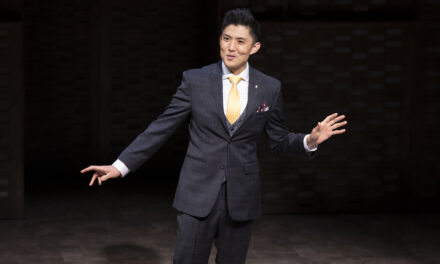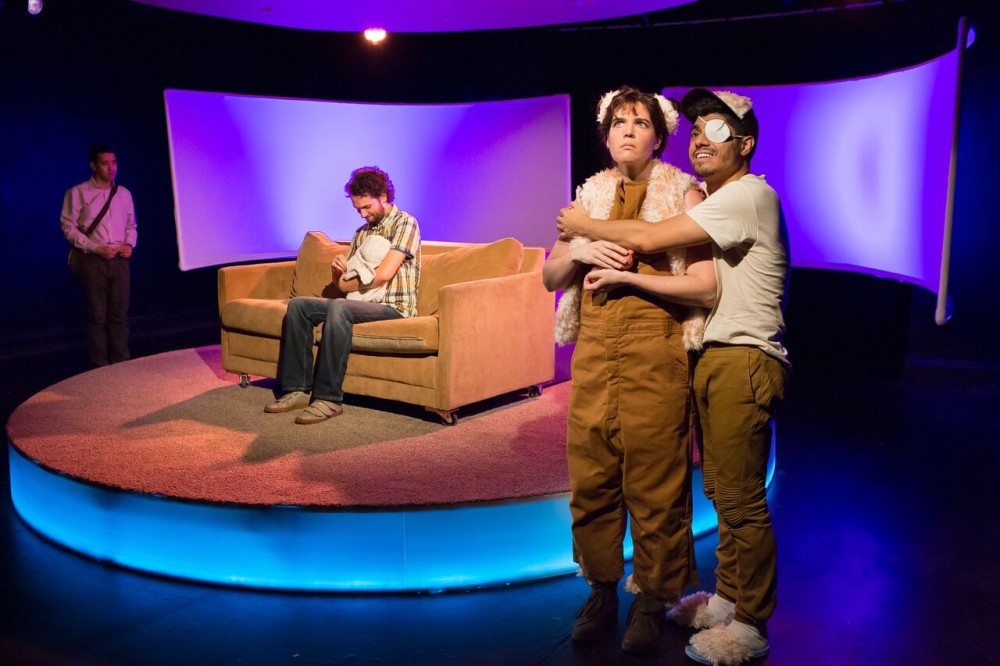by: JK Clarke
Every review of Hypokrit Theatre Company’s debut production of Romeo and Juliet will no doubt make mention and focus on the magical ability of Shakespeare to transcend cultures, continents, race and time. A valid observation indeed: Hypokrit (a new theater company with a multicultural sensibility) has launched the first ever Bollywood-style Romeo and Juliet in New York City I am aware of and it is exciting to see how nicely the style fits in with Shakespeare’s themes and story; it also makes for a colorful and exciting production. There’s no issue there. But, focusing on the universality of Shakespeare in this production, in my opinion, buries the lead (no pun intended . . . okay maybe it was sort of intended). The real story here is the magnificent performance of Morgan DeTogne as Juliet.
Director and Hypokrit Co-Founding Artistic Director Arpita Mukherjee has made some fairly major edits to the play, some more successful than others. The play’s conclusion here does not end with the discovery of the dead lovers and the ensuing grieving and regret, but rather with their death in the tomb. The abrupt ending is somewhat disconcerting, but perhaps understandable given time constraints. However, one of the more compelling changes to the original is that Juliet and Romeo are several years older. I’ve always found it hard to swallow that Juliet is 13 years old and reciting these magnificent lines and experiencing such adult emotions. They don’t jibe with the mind or development of an adolescent. Instead, in this production Juliet appears to be in her late teens or early 20s and is the single girl whose friends and family are desperate to marry off. What’s more, Lady Capulet is her sister not her mother and her nurse is her contemporary and friend. Fascinatingly, in this context many, many more of the lines make considerably more sense. With adjustments of course. What this allows is for Juliet to be the coquettish and enticing young woman her speech suggests she is. And DeTogne pulls it off beautifully: pretty, flirtatious and nubile, she is a perfect, irresistible mate to a suave young Romeo (Gerrard Lobo) with whom she has authentic chemistry. In her hands, Juliet’s lines are touching and believable to such a degree that there’s no longer a need for any suspension of disbelief (vis à vis their sudden infatuation) that usually goes along with a production of Romeo and Juliet.
The fateful party at the Capulet residence wherein the two first meet is a protracted one. Ordinarily, this party is brief and Romeo and Juliet meet within minutes (in stage time). Here, however, we experience a real party, and this is where the Bollywood aesthetic makes so much sense. There is dancing, beautiful costumes, mingling and a truly relatable festive atmosphere, such that we momentarily forget what the party is leading up to . . . until they actually meet. Because of the time we’ve lost ourselves in the party, we suddenly discover them discovering each other. Such a revelation! This is the coup de foudre that precipitates the eventual calamities. Now we get it.
Hypokrit has also taken another unusual step with this production. There are two casts. Ostensibly this is to allow many more actors (and a tip of the hat to the company, as “hypokrit” being the Greek word for “actor,” so they are staying true to their aesthetic) the opportunity to participate in the production, a rather noble and wise undertaking (for it also provides an entire set of understudies for both casts). This review is of the main cast.
In addition to Juliet, there were other notable performances, like Shubhra Prakash’s female Mercutio. It’s an interesting and welcome twist and Prakash plays it well, with the acerbic wit and quick temper one expects of Mercutio; she is a modern spitfire, one we might very well encounter in an inner-city nightclub. And the friendship between a very even and diplomatic Benvolio (Ashton Muniz), Mercutio and Romeo plays out in a wonderful dance number that gets to the heart of their camaraderie. Once again, all of the relationship dynamics become far clearer when we get to see the friends interacting in a form surpassing dialog.
While the production probably could have used a stage larger than the Access Theater’s rather compact black box to support the dance numbers, it is economically employed. Lucrecia Briceno’s and Olivia Edery’s lighting coupled with Eamonn Farrell’s projections of city scapes onto white curtains gave an impression of wide open spaces, or, more intimately, the caverns of Friar Lawrence’s sanctuary.
Alternative productions of Shakespeare’s hallmark plays are as important as classical interpretations, and Hypokrit and director Mukherjee (who has also designed costumes and sound) have delivered a compelling and important production. Not only does it allow those already familiar to see the play from an alternate and enlightening angle, it invites others—who might merely be drawn by the Bollywood aesthetic—to experience the linguistic beauty and artistry of Shakespeare perhaps for the first time.
Romeo and Juliet. Hypokrit Theatre Company. Through February 22 at The Access Theater (380 Broadway, at White Street). See site and schedule for alternate cast nights. www.hypokritnyc.org


